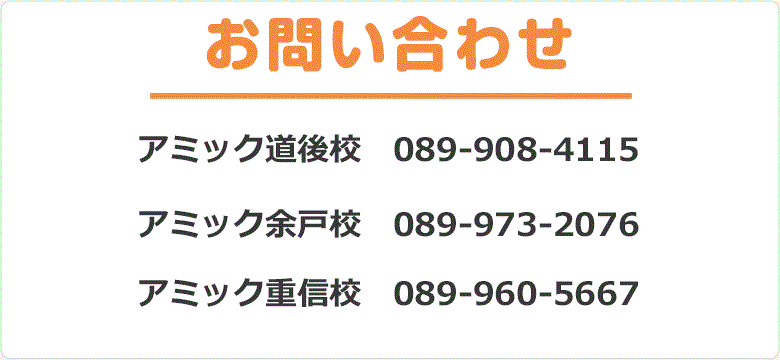月別アーカイブ:2020年2月
The Double Vocabulary of English
English has one of the largest vocabularies of all the languages in the world. I grew up speaking English so I thought it was normal to often have two words for what is, more-or-less, the same thing. Only when I became a teacher of English did I realise how enormous and complicated the English vocabulary is.
At university I started learning Spanish and I noticed an interesting thing, when there were two words for the same thing in English often the Spanish word would be similar to one English word and not the other. For example, in English ‘decision’ and ‘choice’ have the same meaning, and the Spanish word ‘decisión’ matches the first English word but not the second.
When I researched why this happened I learnt a lot more about the history of the English language, and I understood why English has such a large vocabulary. This short video helps explain the ‘double vocabulary’ of English!
– Helen
Setsubun
今日もアミックblogを訪れてくださりありがとうございます♪
春のように暖かかったり、寒い日が続いたりしていますが、今日は節分の日ですね。
節分は立春の日、昔は立春から新年が始まりました。一番寒い日と言われていますが、明日から春の始まりだとおもうとワクワクしませんか?
そんな節分の日、英語でどのように言うのかご紹介します♪
February 3rd is the day of Setsubun.:2月3日は節分の日です
The literal meaning of the word Setsubun is “division of the seasons,”:節分は季節を分けるという意味です
It is believed that *oni come when the seasons change in Japan.
日本では季節の変わり目は鬼がやってくると言われています
There are many rituals to exorcise these oni.:鬼を追い払うためのさまざまな儀式などがあります
Throwing roasted soybeans was first practiced back in the Heian period, to stop oni from attacking villages by throwing beans at their eyes.
豆まきは平安時代に鞍馬山の鬼が都で悪さをするのを、大豆を投げて鬼の目をつぶし、災難を逃れたのが始まりです
To get rid of the oni, people scatter roasted soy beans both inside and outside of their houses.
鬼を追い払うために炒った大豆を家の中と外に撒きます
The phrase “Out with the devil! In with good fortune,” is said when throwing soybeans.
豆を蒔く時には「福はうち、鬼はそと」と掛け声をあげます
Once the beans are thrown, gather them all up and eat the same number of beans as your age. Eat one extra to keep you from sickness and stay healthy for the whole year.
撒いた豆を拾い、歳の数よりひとつ多く食べるとその年の1年風邪をひかず、健康でいることができます。
ぜひ使ってみてくださいね!
英会話・プログラミング・塾・英語学童
お問い合わせ・無料体験レッスンはこちらまで
Bad Luck Years 英会話・英語 アミック
This Sunday I will be going to Kagawa Prefecture for the first time ever to visit Kompirasan. This occasion will be a bit more of an event than the average sightseeing visit though. I will be traveling there with my wife and her parents to have what is known as a yakubarai ritual performed for my wife. This ceremonial cleansing from evil influence and bad luck (I’ve also seen “exorcism” as a possible translation for extra theatrics) is usually done the year before maeyaku, or the year before yakudoshi which is the inauspicious year. That’s two years of preparation to soften the impact of the big bad year! It’s an interesting religious custom/superstition and I’m looking forward to observing the ritual firsthand.
Joe
New Year’s Resolutions 英会話・英語 アミック
- I will start going to the gym.
- I will lose weight.
- I will get more sleep every night.
- I will start a new hobby.
- I will stop an unhealthy habit.
Resolutions are sometimes difficult to stick with, so set goals that you can reasonably achieve. If your goal is too big, it can be difficult to stay motivated.
Tell friends and family about the resolutions you made for yourself. This can help keep you accountable!
Cooking Confusion! 英会話・英語 アミック
Using recipes in your second language can be a very fun and interesting challenge for language learners, but there are some things that just don’t quite translate right. Here are some tricks to help you understand tricky English recipes!
INGREDIENTS
Anyone who has ever tried to go shopping in another country knows that sometimes there can two very different names for the exact same food or spice.
Aubergine / Eggplant
This purple vegetable can be delicious baked or in stews. In the UK and most European countries, this vegetable is known as an aubergine— however, in the US, it is known as an eggplant.
Coriander / Cilantro
This plant is often used in Mexican, Indian, and Thai food. People use the leaves, seeds, and roots to flavor food. However, while most countries agree that the plant, seeds, and roots are called coriander, in the US the leaves are called cilantro.
Courgette / Zucchini
Like the aubergine/eggplant, this is another vegetable that has two names; this long green vegetable is called a zucchini in the US and a courgette in the UK.
MEASUREMENTS
US recipes are already a headache for anyone who is used to the metric system. Cups, teaspoons, ounces, and fluid ounces are already confusing enough— but not nearly as confusing as measurements for spices and seasonings like “pinch”, “dash”, “drop”, and “smidgen”, which can be different for different people.
Pinch
Of all of them, a pinch is probably the easiest to understand. This measurement is the amount of seasoning that you can “pinch” between your thumb and first finger.
Dash
A dash is usually just a little larger than a pinch. If you are pouring spices from a small container, a “dash” is usually one short shake of the container.
Drop
A drop is a measurement used for liquids. Literally, it means the smallest amount of liquid you can pour out of a bottle.
Smidgen
A smidgen is the smallest of all of our measurements, and the most difficult to define. A smidgeon is a tiny little amount, even less than a pinch.
Alright! I think we’re ready to try some English recipes! Good luck and happy cooking!
–Veronica




















